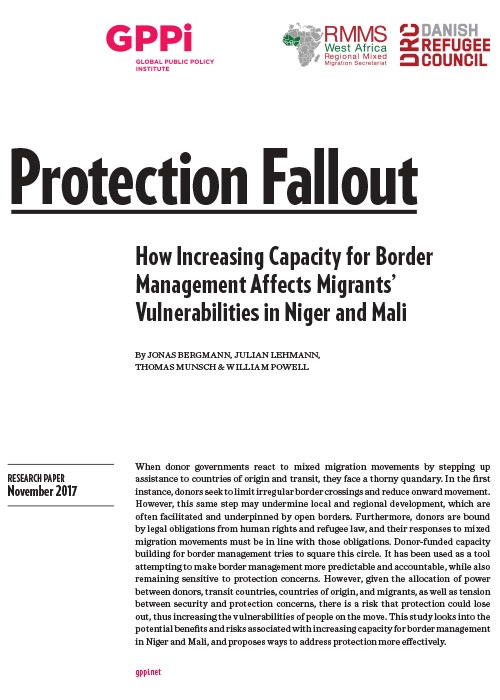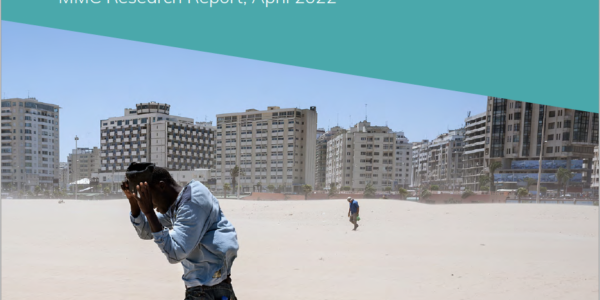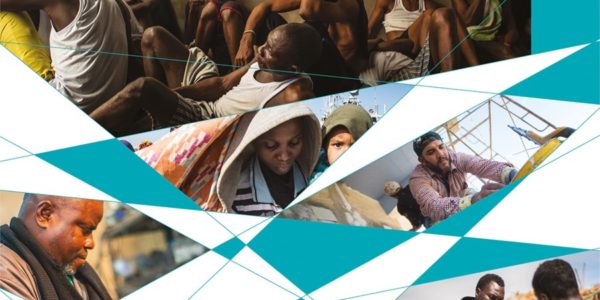
 Research report
Research reportPublished
Published by: Global Public Policy Institute, RMMS West Africa
Region: West Africa
Protection Fallout:
How increasing capacity for border management affects migrants’ vulnerabilities in Niger and Mali
When donor governments react to mixed migration movements by stepping up assistance to countries of origin and transit, they face a thorny quandary. In the first instance, donors seek to limit irregular border crossings and reduce onward movement. However, this same step may undermine local and regional development, which are often facilitated and underpinned by open borders. Furthermore, donors are bound by legal obligations from human rights and refugee law, and their responses to mixed migration movements must be in line with those obligations. Donor-funded capacity building for border management tries to square this circle. It has been used as a tool attempting to make border management more predictable and accountable, while also remaining sensitive to protection concerns. However, given the allocation of power between donors, transit countries, countries of origin, and migrants, as well as tension between security and protection concerns, there is a risk that protection could lose out, thus increasing the vulnerabilities of people on the move. This study looks into the potential benefits and risks associated with increasing capacity for border management in Niger and Mali, and proposes ways to address protection more effectively.
Download
